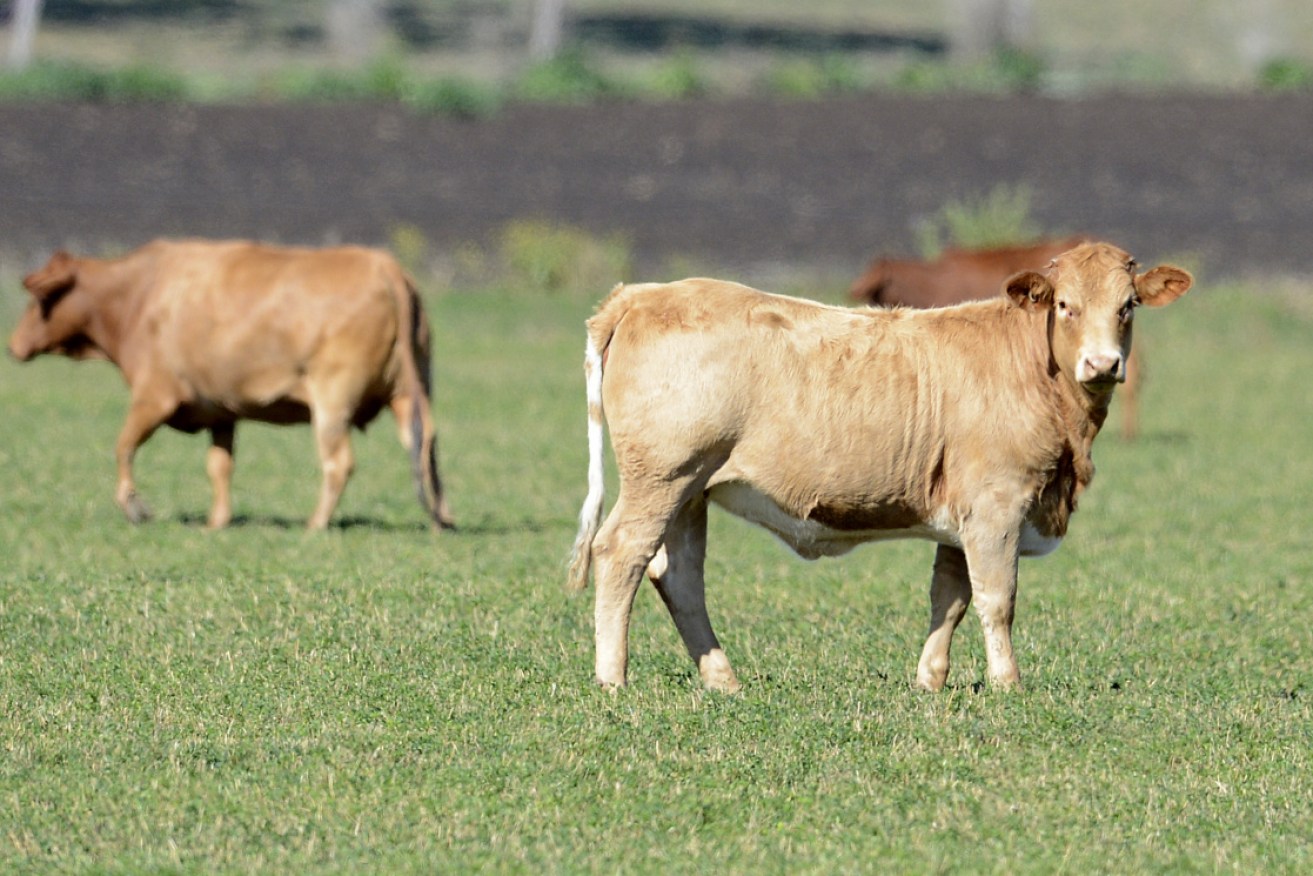US officials query spike in contaminated Australian meat

Murray Watt says Australia has never had a positive detection of Lumpy Skin Disease "on our shores". Photo: AAP
US food safety officials have blocked a rising number of meat shipments from Australia since 2019 due to faecal contamination, straining trade relations between the two countries, according to documents reviewed by Reuters.
Labour and food safety groups attribute the problem to an Australian system that increasingly allows companies to inspect their own meat, replacing government inspectors.
Similar efforts to privatise inspections are under way in other major meat-producing countries including the United States.
Ten shipments of meat from Australia, America’s second biggest foreign meat supplier, were refused by the US Food Safety and Inspection Service (FSIS) because of contamination with faeces or other digestive matter in 2020, up from one in 2019 and four in 2018, according to internal data from the US Department of Agriculture (USDA) included within the documents.
Canada and New Zealand, two other large suppliers of meat to the United States, each only had one rejected shipment for contamination with faecal or other digestive matter in 2020, the internal data show.
Mexico, another major supplier, had none.
Another three shipments of Australian meat were rejected for the same reason during the first two months of 2021, compared to one from New Zealand and none from Canada or Mexico, the data show.
More recent figures were not included in the documents reviewed by Reuters, and the USDA declined to provide them when asked.
The companies that exported the rejected Australian shipments include JBS Australia, Thomas Foods, Fletcher International Exports, Australian Lamb Co., and V&V Walsh.
Reuters was able to identify the firms by cross-referencing the internal data detailing the date and reasons for the rejections with publicly available USDA data detailing dates and company names but excluding the reasons for the rejections.
None of the companies responded to requests for comment.
Eating meat contaminated with faeces or other digestive material can result in deadly illness caused by E. coli and other pathogens.
Because US food safety inspectors only physically examine or test a subset of imported meat, the rejections suggest that other contaminated shipments may have made it through the US border, according to food industry experts.
FSIS downplayed the rejections data in a statement to Reuters, saying its import inspection process “provides confidence in the safety of product from Australia that enters into U.S. commerce.”
The US food inspection agency added that just 0.6 per cent of the Australian meat that it physically examined in 2020 was rejected. It did not provide a figure for what fraction of all imports was examined.
Australia’s Department of Agriculture, Water, and the Environment (DAWE) told Reuters in a statement that “Australian non-compliances remain very low – both relative to Australia’s total volume of meat and meat products exported, and when compared to competitor trading partners.”
Critics of company-run inspections say the system can result in more contaminated meat because plant workers often aren’t as experienced as government inspectors and may also feel pressure from their employers to prioritise speed over safety.
The Australian Meat Industry Council, a trade association, did not respond to a request to comment.
Brooke Muscat, deputy national president at Australia’s Community and Public Sector Union, which represents government inspectors and opposes the semi-privatised system, says government inspection jobs have fallen by half.
She anticipates that Australian meatpackers will have replaced almost all federal inspectors with company employees by the end of 2022.
“As they’ve announced more outsourcing of meat inspection, we’re saying what you’re going to see is increasing rejections in the US,” Muscat says.
“And it’s coming to fruition.”
-Reuters








